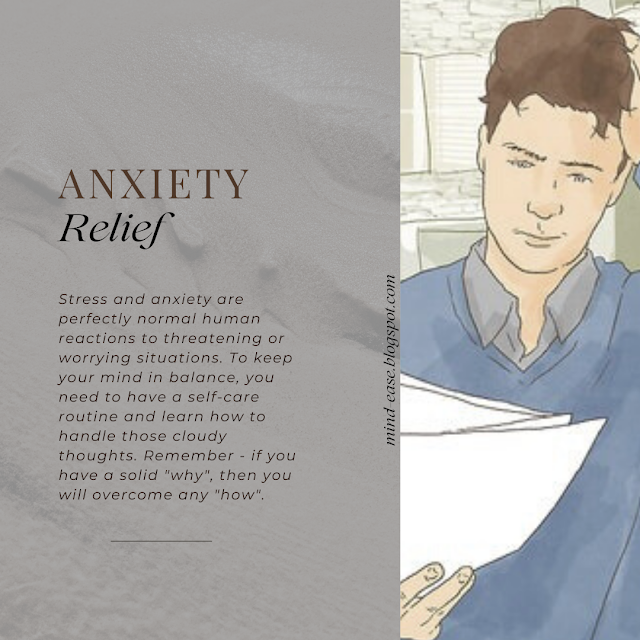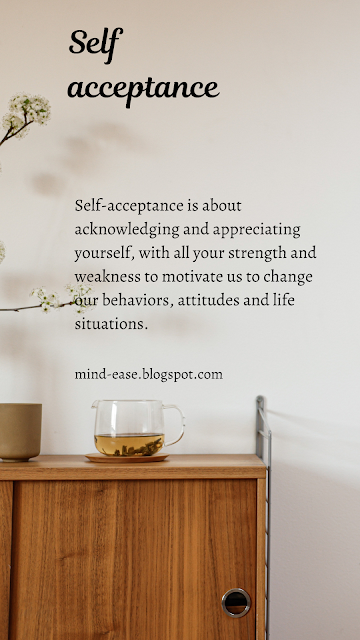Anxiety is a natural response to stress or threat, it is a combination of uncomfortable feelings such as tension, worry and fear for oneself and others. Anxiety is a feeling of worry, fear, or stress about an event or situation. It's normal for people to be afraid in response to stress. People have different personalities and characters, and some people tend to be extremely afraid. Anxiety can arise from certain situations, it can also be a reaction to your thoughts about things that have already happened or are about to happen. Rare feelings of anxiety are a normal part of life, but people with anxiety disorders often experience difficulty, fear and panic in everyday situations. These feelings are unhealthy, they interfere with your life and prevent you from functioning normally, which interferes with your daily activities and is very difficult to control.
Anxiety involves worrying that has mental, emotional, and physical effects that lead to negative thoughts that make people feel out of control. There may also be physical feelings such as sweating, shaking, nausea or shortness of breath. Those suffering from anxiety have to deal with many unfair and negative thoughts, they may assume the worst will happen and it may have become a habit to believe in the worst-case scenario and any positive outcome may feel new to them. It's important to realize that what works for someone else's fear may not work for you. You can start by figuring out what (or who) is causing your anxiety and what provides relief. Fortunately, there are effective strategies that can help manage anxiety in both the short and long term.
Identify sources of stress
When fear occurs, stop and think about what scares you. Start by identifying the root cause of stress. Find out what's bothering you to get to the root of your anxiety, and find out how you can take some time to explore your thoughts and feelings—or at least get a handle on your feelings. Knowing the triggers should also help you discuss them with others and seek support if needed.
Find out what bothers you
To get to the bottom of your fear, you need to find out what's bothering you. You can do this by taking some time to explore your thoughts and feelings. It's important to fight these thoughts and challenge them when they enter your head to break your usual negative thought patterns.
Focus on what you can change
Often fear arises from fear of things that haven't even happened yet and may never happen. Another way to deal with anxiety is to focus on the things you can change. By being bold, you can feel like you have more control over your situation. Focus on what you can change, life can be unpredictable and no matter how hard you try you can't always control what happens.
Distract yourself
Sometimes it can be most helpful to simply redirect yourself to focus on something other than your fear. When you're feeling anxious, look for ways to distract yourself from your feelings of worry, stress, or anxiety. Try to recognize when the worst is coming, challenge that feeling, and tell yourself that you can get through it successfully. Whether your fear is being judged, criticized, or belittled, you can face the situation and overcome that fear.
Replace your fears
Replace your fears by changing your attitude towards them. With practice, you can learn to develop a more positive attitude. Regardless of what you're worried about, a big part of the problem is paying attention to the present moment. Fear loses its grip when you take your focus off worry and bring your awareness back to the present. However, you can choose how you deal with the unknown by turning your fear into a source of strength by letting go of fear and focusing on gratitude.
Find a mantra
Use positive claims every day to control your mood when you're feeling anxious.
You need to tell yourself, "This feeling is temporary." This will help you feel calm.
Sometimes anxiety can be caused by a real circumstance in your life. Perhaps you are in a situation where it is realistic to think about or talk about downsizing.
Be positive
Cultivating a positive attitude turns that helpless feeling you are experiencing into something you can control. It allows you to analyze situations that feel endless by taking small steps. Positive thinking works the same way, change your thought process, take the small, specific moments that are stressing you out and focus on all the good things that are causing stress and focus on all good things that are coming out of it

For some people, anxiety is more than just a feeling of uneasiness, worry, or fear that comes up now and then, it's a state of mind that keeps people up at night, troubling them endlessly and affecting every part of their lives. Ask yourself: "Is this fear based on reality?", "Is there a more realistic outcome of this event?". Anxiety will try to increase the negative and diminish the positive, but it's up to you to realize that an unfavourable outcome isn't the worst that can happen.
Life can be unpredictable and no matter how hard you try, you can't always control what happens. However, you can decide how to deal with the unknown. You can turn your fear into a source of strength by letting go of fear and focusing on gratitude. These will push you to find effective solutions instead of leaving you stuck, overwhelmed, and defeated. It can be difficult to challenge your negative thoughts if you can't identify what they are when they arise. These are also different techniques for managing some of the most common anxiety symptoms that can be helpful when you're going through worrying times at home or work or face specific challenges that make you anxious. It is important to understand these so that you can get the right advice and support.








Thanks for this piece,you are very right:Life can be unpredictable and no matter how hard you try, you can't always control what happens..
ReplyDeleteNice one👍
ReplyDelete